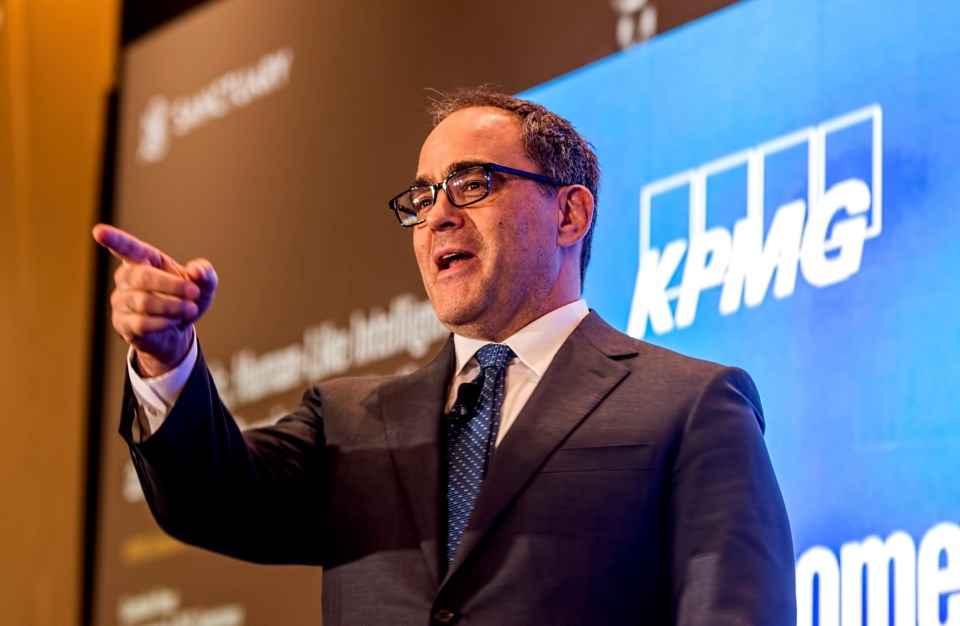Vancouver's Sanctuary AI has netted an undisclosed but significant investment from BDC's Thrive Venture Fund and InBC Investment Corp. (InBC), the company said today.
Sanctuary AI plans to use the money to improve its product line of human-shaped robots powered by artificial intelligence.
The new money brings the total investment in Sanctuary AI to more than $140 million to date, the company said in a news release.
“Sanctuary is a great example of the creative and innovative spirit in B.C., and by investing in leading innovators like Sanctuary we will continue to grow our technology sector, creating new jobs and anchoring intellectual property in the province for a stronger, more sustainable economy that works for everyone,” said Leah Nguyen, chief investment officer at InBC.
Some of Sanctuary AI's other investors include Accenture, Bell, Export Development Canada, Evok Innovations, Magna, SE Health, Verizon Ventures and Workday Ventures.
Investment around the globe has been pouring into AI-related ventures, and humanoid-robot makers. BIV last year ranked AI as its newsmaker of the year.
Sanctuary AI CEO Geordie Rose told an AI conference in Vancouver May 29 that he believes that investment in AI-powered humanoid robots is now surging because the investing public newly believes that AI-powered robots that think and act like humans will soon be possible to build.
While that is not yet happening, firms’ capacity to do it is getting close, said Rose, whose six-year-old company employs about 200 people and is looking to hire about 50 more.
Sanctuary AI unveiled the seventh-generation of its Phoenix humanoid robots in April. That was less than a year after the company released its sixth generation Phoenix robot, which was named one of Time's best inventions of 2023 and helped Sanctuary AI be named one of the top 15 start-ups in Canada by LinkedIn.
Successful Vancouver investors have piled into the humanoid-robot niche.
Entrepreneur and KITS Eyecare Ltd. (TSX:KITS) CEO Roger Hardy is one of the many ultra-rich technology investors backing the humanoid robot venture Figure AI.
“I put over US$3 million into this deal,” Hardy told BIV in March.
Bloomberg first reported that Amazon.com founder Jeff Bezos and large technology companies, such as Nvidia (Nasdaq:NVDA), had pumped approximately US$675 million into Figure AI, in a funding round that valued the company at about US$2 billion. That valuation has reportedly since risen.
Others financing Figure AI include ChatGPT-maker OpenAI, and its main investor, Microsoft Corp. (Nasdaq:MSFT).
Tesla Inc. (Nasdaq:TSLA) CEO Elon Musk has a separate humanoid-robot project. He has steered billions of his company’s dollars into funding a robot program he calls Optimus.
The way Rose told it at the AI conference in May, however, is that his Vancouver-based company is the real innovator of humanoid robots, and everyone else is a copycat.
He started on his mission to build humanoid robots 15 years ago, he said. His aim was to make conscious, sentient beings with intelligence, feelings and emotions.
Rose estimated that in 2020 it took 11,200 days to train an AI neural network roughly the size of the human brain to do tasks. Last year, it took about 140 days. He estimates that next year, it will take 14 days.
“Almost all of this started in Canada. All this neural-net stuff started here,” Rose said. “It pisses me off because all of the money is being made somewhere else.”
He told BIV after his presentation that Vancouver has many smart people building technologies, but money is flowing to companies south of the border because that is where the Big Tech companies are based.
Seattle technology workers tend to earn more, which can draw top talent.
“It’s not just about the workers there,” Rose said. “There is also [a lower] business tax. Businesses might do better if they have less tax.”





